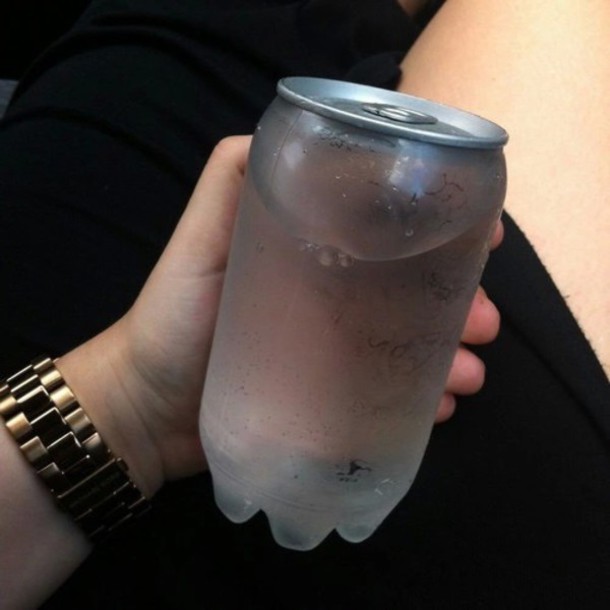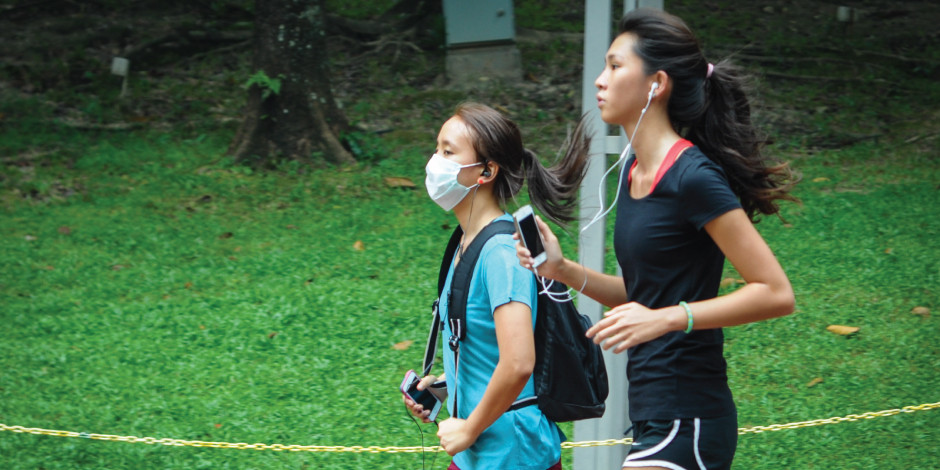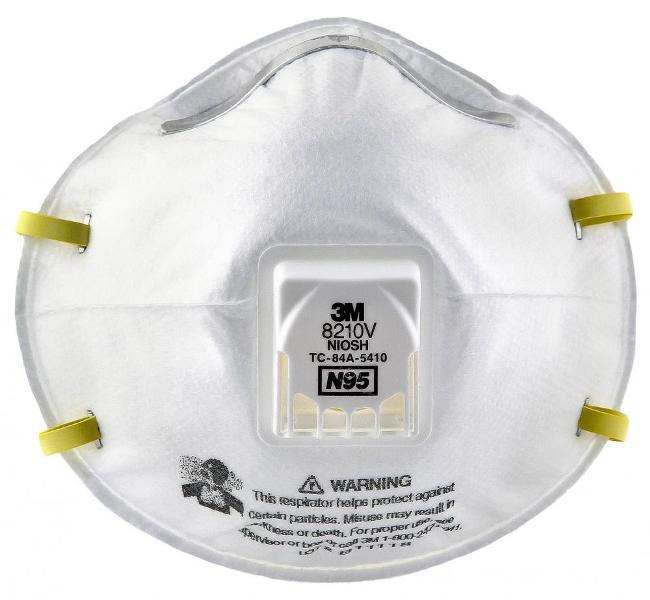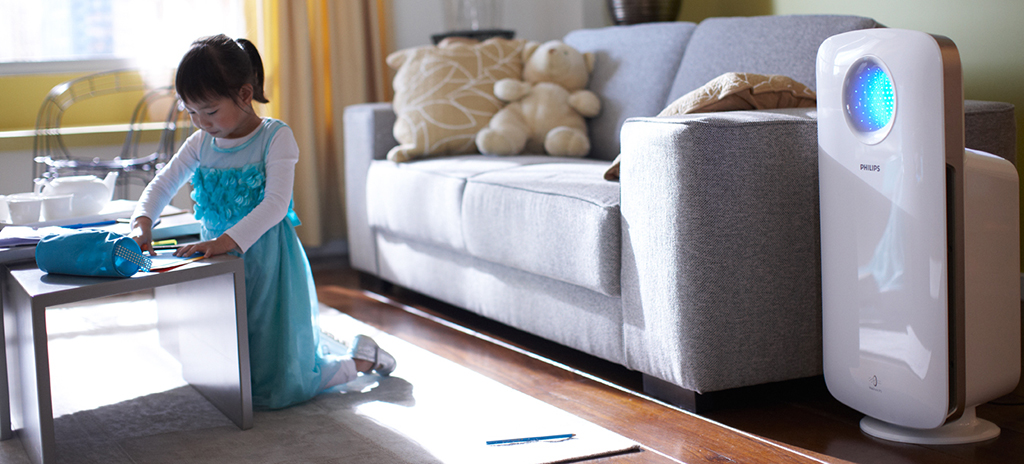5 Worst Things To Do To Your Body When It's Hazy Outside
You should postpone that hiking trip for good reasons!
1. Not drinking enough water
The haze causes extremely drying conditions. Therefore, it's important to stay hydrated.
Why not drinking enough water is a bad idea:
Every cell in our body needs water to function - our body uses water to maintain temperature and remove waste from the body among other things. We lose water daily, through urine, sweat and respiration. When we don't drink enough water to replace lost fluids, our body starts to suffer.
We start to feel thirsty when our water loss is at 1%. Signs of dehydration include dry mouth, fatigue, etc. Moreover, water is used in the delivery of oxygen. Without enough water, the blood flow to your tissues will be reduced. So drink enough water at regular interval.
Here's what you should do to keep yourself hydrated:
Apart from drinking around eight glasses of water a day, eat a lot of fruits as they are an excellent source for water. According to WebMD, watermelon is 90% water, so it ranks highest on the list. Oranges, grapefruit, and melons like cantaloupe and honeydew are also strong contenders.
Drink milk, even sodas. While they get a bad rap for lacking nutritional value, they can still be hydrating. Juices and sports drinks are also hydrating. (PS: You can lower the sugar content by diluting them with water).
Also, in order to remain hydrated during the haze, limit your consumption of alcohol as it's a huge dehydrator. But in case you must have it, aim for at least a one-to-one ratio with water.
2. Not cutting down on outdoor activities like jogging and sports
Haze = avoid outdoor activities, especially jogging, running and outdoor sports. More so for people suffering from chronic illnesses, especially heart and respiratory disease, should remain indoors when haze hits unhealthy levels. Basically, avoid unnecessary outdoor activities.
Why it's a bad idea to indulge in outdoor activities during haze:
When we are running, jogging, or playing outdoor sports, we tend to breathe harder and faster than usual to increase our air intake. Therefore, due to the harmful particles in the air during haze, we will inevitably breathe in more of these pollutants into our lungs. Especially for those with an existing respiratory or heart condition, these minute particles can be dangerous as they could trigger asthma or heart attack.
Also, if the Air Pollutant Index (API) crosses above 100, there is an increased risk of getting eye irritation, sneezing or coughing. At this level and beyond, even those without any pre-existing illnesses should limit their contact with air contaminants and cut down on outdoor activities whenever possible.
Here's what you should do:
Keep yourself updated with the latest air quality index value for your area before hitting the road for a run. For API readings, you can check the Department Of Environment's website.
If you have a choice between exercising indoor or outdoor during a haze, a smarter choice is almost always to exercise indoor, especially when the API climbs above 100. But if you must exercise outdoor, avoid exercising in highly congested areas near busy roads and freeways, particularly during rush hours.
Or you can head to your nearest gym and step on a treadmill or an elliptical trainer.
3. Not covering your nose when you're out
Typically, two types of particles make up the haze.
The coarser ones, which the human body is mostly equipped to filter out. The bigger worry is the PM2.5 pollutants - they are no larger than 2.5 microns, or a 30th the diameter of a human hair. These can become trapped deep in the lungs and are tiny enough to pass through linings into the bloodstream.
Long-term exposure to these particles on a regular basis has been linked to increased risk of death from heart and lung complications such as lung cancer or heart disease.
Now imagine your being out, without a mask (or a respirator), completely exposed to the haze? Doesn't look good health-wise, does it? Under severe haze condition, wear a respirator if you must go outside.
It's important that you wear right kind of mask:
Respirators work better than surgical masks as they seal better and restrict more polluted air from entering the nose and mouth. They also come with the right filter to remove fine particles found in a haze.
If you stayed indoor, but still experience haze-related conditions, it may be necessary to use respirators indoor as well. Read: Do Masks Really Protect You From The Haze?.
Our Defence Minister Hishammuddin Hussein has fallen ill because of the haze. Earlier on Sunday, he tweeted that he has already lost his voice and his nose is blocked. He also replied to some tweets on the haze situation and urged people to stay indoors.
4. Not moisturising your skin
Depending on how sensitive you are, haze can cause the skin to be "overwhelmed" and you may find yourself developing skin problems.
Why not bothering to take care of your skin during haze is a bad idea:
While most of us are familiar with the ill effects of breathing in the haze, the pollutants in the air — particulate matter, sulphur dioxide, ozone, nitrogen dioxide and carbon dioxide — also wreak havoc when they come into contact with our skin, and may cause clogged pores and irritation, especially for those who suffer from eczema.
Moreover, the high level of free radicals and toxins in the smoggy air attacks the skin at a cellular level, robbing skin cells of oxygen and causing a breakdown of cellular function that could lead to premature skin ageing.
Here's what you should do for your skin during haze:
Use a non-oil-based makeup remover to slough away the grime, before cleansing your skin. It is important to ensure that you cleanse well, but beware of over-cleansing. Stop using harsh, drying soaps, as they can strip away the skin's natural essential oil, leaving the skin dry and dehydrated. Also, no scrubbing.
Apply moisturising products on your skin twice a day to improve skin barrier function, prevent skin from drying and to reduce itch. According to a Malay Mail Online report, there are certain kinds of skincare products that you can include in your daily regimen that will help your skin defend itself from the pollution that it comes into contact with from morning till night, even if you are in the air-conditioned confines of the office or home.
Haze-shielding skin-care, a serum that contains a high level of antioxidants, which helps prevent skin inflammation and photo-ageing due to pollution in the deeper layers of the skin.




